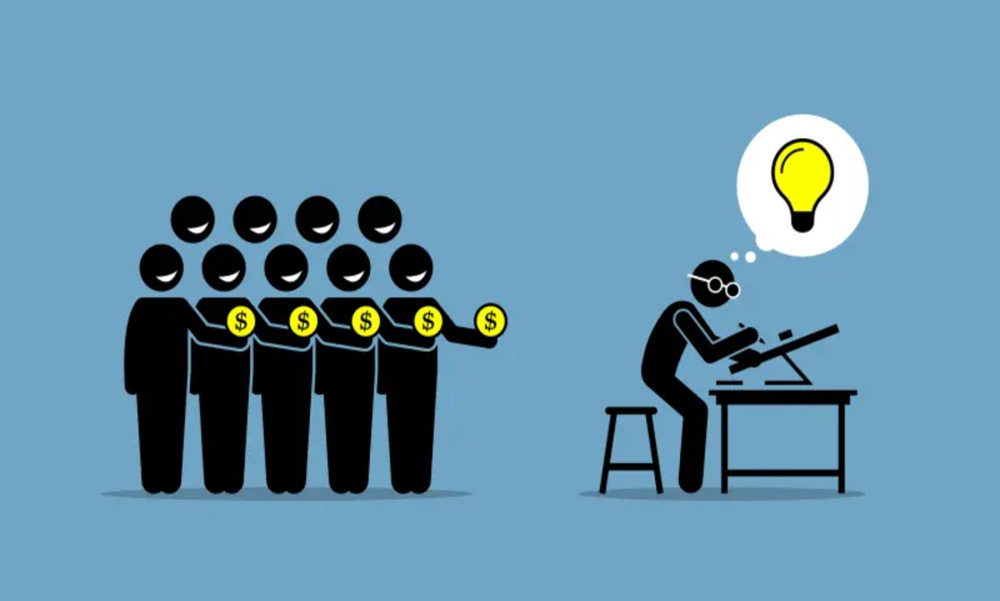Crowdfunding: Revolutionizing Event Planning and Funding
Crowdfunding has emerged as a game-changer in the realm of event planning and fundraising. In this digital age, individuals and organizations can harness the power of the crowd to bring their event ideas to life.
Whether it's a music festival, conference, charity gala, or community gathering, crowdfunding offers a dynamic platform to engage with supporters, raise funds, and build a vibrant community around your event. In this blog post, we will delve into the concept of crowdfunding, explore its applications in the event industry, discuss the benefits and drawbacks, and provide insights on how event planners can make the most of this innovative funding model.
What is Crowdfunding
Before we dive into the specifics of using crowdfunding for events, let's establish a clear understanding of what crowdfunding entails. Crowdfunding is a method of raising funds by soliciting small contributions from a large number of individuals, typically through online platforms. It offers a democratic approach to funding, where anyone can contribute to projects or causes they believe in.
The crowdfunding model thrives on collective support, allowing individuals or organizations to tap into a vast pool of potential backers who share an interest in their event.
Crowdfunding for Events
Events of all types, scales, and purposes can greatly benefit from crowdfunding. Here are some key ways event planners can utilize crowdfunding:
-
Funding the Event: Crowdfunding can serve as an alternative financing method to traditional avenues. By presenting your event concept, goals, and rewards or perks for backers, you can attract individuals passionate about your cause or interested in attending the event. This approach not only provides financial support but also creates a sense of community and excitement around the event.
-
Market Validation: Crowdfunding acts as a litmus test for event ideas. If your campaign gains traction and reaches its funding goal, it demonstrates a level of public interest and validates your event concept. This can be valuable when seeking additional sponsorship or convincing potential attendees and partners of the event's viability.
-
Engaging Attendees: Crowdfunding platforms allow you to interact directly with your audience and build a loyal following. Through regular updates, exclusive content, and personalized rewards, you can deepen the connection with your backers, turning them into active participants and ambassadors for your event.
Pros and Cons of Crowdfunding for Events
Like any fundraising method, crowdfunding has its advantages and disadvantages. Let's examine them:
Pros:
-
Access to Capital: Crowdfunding broadens the pool of potential funders, increasing the chances of securing funding for your event.
-
Market Testing: Crowdfunding campaigns provide valuable insights into the demand and appeal of your event, helping you fine-tune your marketing and event planning strategies.
-
Community Building: Crowdfunding fosters a sense of community and shared ownership among backers, creating a dedicated and passionate audience base for your event.
-
Publicity and Exposure: Successful crowdfunding campaigns can generate media attention, expanding the reach of your event and attracting additional attendees and sponsors.
Cons:
-
Time and Effort: Running a crowdfunding campaign requires dedicated time and effort, including creating compelling content, managing the campaign, and engaging with backers.
-
Uncertainty of Success: Not all crowdfunding campaigns achieve their funding goals. It is essential to have a robust marketing strategy, a compelling pitch, and a strong network to increase your chances of success.
-
Fulfillment Challenges: Reward fulfillment can be complex, especially if you have a large number of backers or intricate reward tiers. Proper planning and organization are crucial to ensure a smooth fulfillment process.
Benefits and Best Practices for Crowdfunding Events
To make the most of crowdfunding for events, consider the following tips:
Set Realistic Goals: When setting your crowdfunding goal, be sure to consider the costs and expenses associated with your event. It's important to strike a balance between an achievable target and the actual funds needed to make your event a success. Setting unrealistic goals can lead to disappointment and may deter potential backers.
Compelling Storytelling: Craft a compelling narrative that conveys the unique aspects and value of your event. Use engaging visuals, videos, and written content to captivate potential backers and make them feel emotionally invested in your cause. Clearly communicate how their contributions will make a difference and what they can expect in return.
Offer Attractive Rewards: Create a range of rewards or perks that align with different contribution levels. These can include early-bird ticket discounts, VIP experiences, merchandise, or exclusive access to behind-the-scenes content. Ensure that the rewards are enticing and provide value to your backers.
Strategic Marketing and Promotion: A well-executed marketing strategy is essential to maximize exposure and attract backers. Leverage social media platforms, email newsletters, press releases, and personal networks to reach potential supporters. Engage with your audience consistently by providing campaign updates, milestones, and interactive content.
Foster Engagement and Transparency: Encourage two-way communication with your backers by promptly responding to comments, messages, and inquiries. Transparency is crucial; keep your backers informed about the progress of the campaign, any challenges encountered, and how their funds are being utilized.
Leverage Existing Networks: Tap into your existing network of friends, family, colleagues, and supporters to kickstart your crowdfunding campaign. Personal connections can be instrumental in generating initial momentum and spreading the word about your event.
Post-Campaign Follow-up: Once the crowdfunding campaign concludes, express gratitude to your backers and keep them informed about the event's progress. Provide regular updates, sneak peeks, and exclusive content to maintain their enthusiasm and build anticipation for the event.
Here is a list of popular crowdfunding platforms or services:
- Kickstarter
- Indiegogo
- GoFundMe
- Patreon
- Seedinvest
- Fundable
- Crowdfunder
- RocketHub
- Fundly
- Ululu
These are just a few examples of crowdfunding platforms and services available. Each platform may have specific criteria, guidelines, and fee structures, so it's important to review them in detail to determine which one aligns best with your crowdfunding needs.







